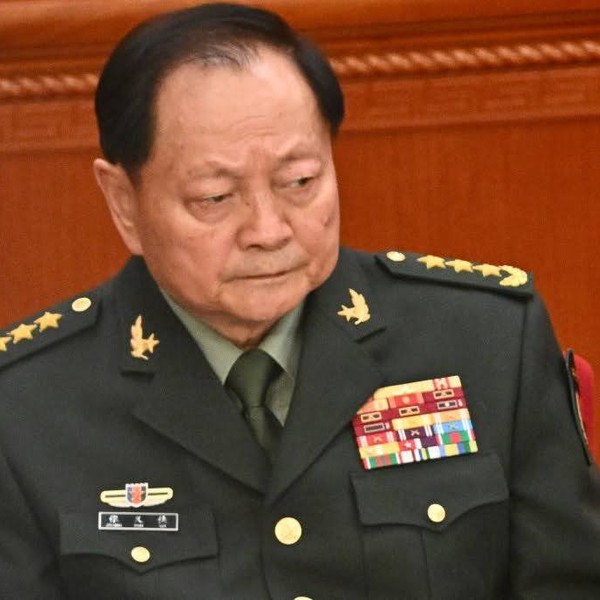OPINION – The need to avoid war and military confrontation was the focus of Track 2 talks with China following the Asia-Pacific Economic Cooperation (APEC) conference in San Francisco last month. Former government officials and academics also focused their attention on tensions in the South China Sea and the Taiwan Strait and on the need to establish rules of engagement to reduce risks in maritime encounters.
A good portion of the talks dealt with ongoing pressure from China on the Philippines in the South China Sea and on China’s interference with Philippine efforts to resupply a small Philippine garrison on the Second Thomas Shoal.
Chinese Coast Guard vessels and fishing boats have been actively interfering with Philippine efforts to resupply the garrison, disabled a Philippine vessel with water cannons, and collided with another Philippine vessel. In response, the U.S. made it clear to China that an armed attack against Philippine forces would activate the U.S. – Philippine Mutual Defense Treaty.
Most thought that tension in the South China Sea could quickly and unexpectedly escalate, with the potential for broader conflict. Indeed, the sense was that it was the South China Sea that required immediate attention. Tension in the Taiwan Strait with upcoming presidential elections in January 2024, was also of concern, especially given Chinese naval and air activities around the island of Taiwan.
It's not just for the President anymore. Cipher Brief Subscriber+Members have access to their own Open Source Daily Brief, keeping you up to date on global events impacting national security. It pays to be a Subscriber+Member.
All agreed that restoring leadership communications and military-to-military relations were positive deliverables from the summit of Presidents Joe Biden and Xi Jinping. But it will be incumbent on these senior officials, with expanded communications with Cabinet and lower-level officials, to ensure that our two countries don’t stumble into accidental conflict and war due to misunderstanding or miscommunications related to developments in the South China Sea and the Taiwan Strait.
Also of concern, was the exponential escalation of North Korea’s nuclear and ballistic missile capabilities and the potential for conflict on the Korean Peninsula and throughout Northeast Asia. China’s leadership role in convening the Six-Party Talks with North Korea was discussed, with some commentary on the value of China once again working with the U.S. to get North Korea back to the negotiating table.
These and other issues were discussed, to include Russia’s invasion of and war with Ukraine and Hamas’s 7 October terrorist attack on Israel and the killing of more than 1200 Israeli and foreign nationals and the taking of 236 hostages. Economic challenges, the pressing climate crisis and managing Artificial Intelligence were other issues discussed, all requiring greater U.S. – China collaboration.
Cipher Brief Subscriber+Members enjoy unlimited access to Cipher Brief content, including analysis with experts, private virtual briefings with experts, the M-F Open Source Report and the weekly Dead Drop - an insider look at the latest gossip in the national security space. It pays to be a Subscriber+Member.
The main take away from this conference was the imperative to enhance bilateral and multilateral dialogue and cooperation, with a focus on reducing existential threats and fostering regional and global stability and security.
Indeed, witnessing Russia’s war in Ukraine, with significant casualties and suffering, and Israel’s war with the Hamas terrorist organization, and the heavy casualties and suffering in Israel and Gaza, it’s doubly important now that the U.S. and China work harder to ensure that we not only prevent any future conflict between our two countries in the South China Sea or Taiwan Strait, but that we collaborate to end ongoing conflicts and prevent the potential for a future war on the Korean Peninsula.
As we correctly analyze what more we could have done to stopped Russia from invading Ukraine and what pre-emptive actions could have been taken to keep Hamas from launching its barbaric attack on Israeli civilians on October 7, future generations will look back on how well we managed U.S. – China relations to ensure that conflict was prevented and cooperation was enhanced for the common good of all nations.
This column by Cipher Brief Expert Ambassador Joe Detrani was first published in The Washington Times
The Cipher Brief is committed to publishing a range of perspectives on national security issues submitted by deeply experienced national security professionals.
Opinions expressed are those of the author and do not represent the views or opinions of The Cipher Brief.
Have a perspective to share based on your experience in the national security field? Send it to Editor@thecipherbrief.com for publication consideration.
Read more expert-driven national security insights, perspective and analysis in The Cipher Brief














